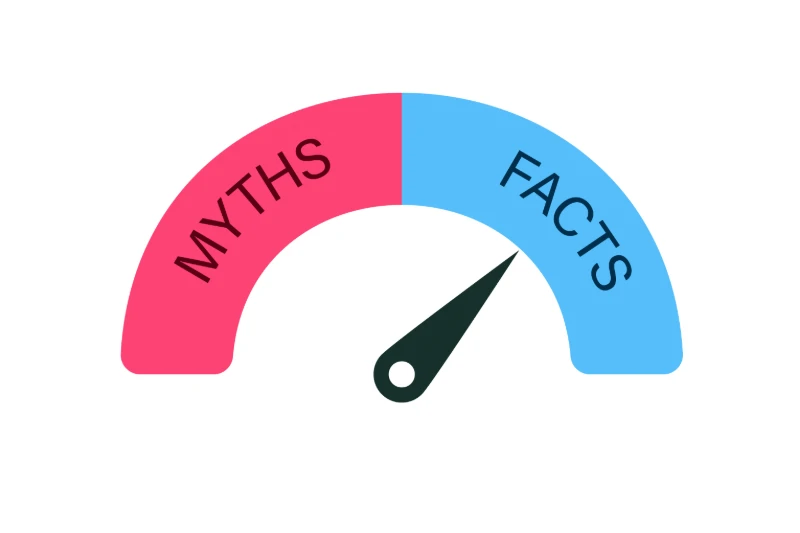When it comes to getting a mortgage, there’s no shortage of misinformation. Many homebuyers, especially…
Stop Unwanted Calls After a Mortgage Credit Check: What You Need to Know About Trigger Leads
Protecting Yourself from Trigger Leads
Applying for a mortgage is an important milestone, but it can also come with an unexpected—and frustrating—side effect. Picture this: you’ve just applied for a home loan, and suddenly, your phone won’t stop ringing. Unknown lenders flood your inbox and voicemail with offers you didn’t ask for. What’s going on?
This is the result of something called trigger leads. While they can be frustrating, understanding what they are and how to protect yourself can help you stay in control of the mortgage process.
What Are Trigger Leads?
A trigger lead occurs when major credit bureaus (Experian, Equifax, and TransUnion) sell information about your mortgage credit inquiry to other lenders who are seeking potential customers. This happens as soon as a credit check is conducted during your mortgage application. These lenders then reach out with offers—sometimes aggressively—trying to win your business.
Trigger leads are completely legal, but they can feel invasive. Companies use these leads to target you because they know you’re actively considering a home loan.
Why Do Trigger Leads Happen?
Here’s why trigger leads exist and what motivates companies to rely on them:
- Target Active Homebuyers: Lenders know you’re serious about getting a home loan and want to compete for your business.
- Offer Deals: Lenders initially present lower rates or incentives to entice you to switch to their services but often not disclosing hidden fees and costs until later in the process
- Mass Marketing: Many companies use trigger leads to reach out via cold calls, texts, or emails—sometimes in overwhelming volumes.
Unfortunately, these unsolicited offers can lead to confusion, especially when the messaging is pushy or misleading.
Who Is Responsible for Trigger Leads?
There are three main players involved in trigger leads:
- The Credit Bureaus: They sell your data to other businesses.
- Third-Party Lenders and Brokers: These are the companies that purchase the leads and reach out to you.
- Marketing Firms: Some firms sell your data to multiple lenders, multiplying the number of calls or messages you receive.
It’s important to note that your current lender or mortgage broker is not responsible for these trigger leads—they have no control over the credit bureaus selling your information.
5 Steps to Stop or Limit Trigger Leads
The good news? You don’t have to feel powerless. There are several steps you can take to reduce or even stop unwanted calls and emails related to trigger leads.
1️⃣ Opt Out of Pre-Screened Offers
Before applying for a mortgage, visit www.OptOutPrescreen.com to opt out of credit offers.
- Choose “Electronic Opt-Out” to block offers for 5 years or “Permanent Opt-Out” for a lifetime ban (requires completing a mailed form).
- Keep in mind that this process can take a few days, so it’s best to do it before your lender pulls your credit.
- When applying with The Mindful Mortgage Team we always start with a soft credit pull which doesn’t cause a trigger lead. This gives you time to opt out before the hard credit pull is done. Be sure to ask your lender to start with a soft credit pull if possible
2️⃣ Join the National Do Not Call Registry
Register your phone number at www.donotcall.gov.
- This doesn’t stop all calls, but it significantly reduces the volume of cold calls you’ll receive from legitimate companies complying with the rules.
3️⃣ Use a Temporary or Alternate Phone Number
When applying for a mortgage, consider using a Google Voice number or another alternate phone number.
- This allows you to keep your personal number private while managing calls related to your mortgage application more easily.
4️⃣ Block and Report Unwanted Calls
If you’re receiving excessive calls:
- Block the numbers directly on your smartphone or by using an app like Hiya or your carrier’s spam-blocking service.
- Report spam calls to the FTC via www.ftc.gov.
5️⃣ Inform Your Lender You’re Aware of Trigger Leads
During your mortgage process, tell your loan officer or mortgage broker that you are aware of trigger leads and trust working exclusively with them. This helps prevent confusion if competing companies contact you.
Final Thoughts on Trigger Leads
Trigger leads can feel invasive, but they don’t have to derail your mortgage experience. By taking proactive steps to minimize their impact, you can stay focused on what really matters—finding the right loan and home for your needs.
The most important thing to remember is to work with a trusted lender who prioritizes your goals and provides clear, honest guidance. Stay informed, be wary of high-pressure sales tactics, and don’t hesitate to ignore unsolicited offers.
Need Mortgage Guidance Without the Hassle?
If you’re looking for a loan without the stress of unwanted calls, I’m here to help. With transparency and care, I’ll guide you every step of the way—no trigger leads involved.
📩 Contact me today to explore your mortgage options and start the process with confidence.




